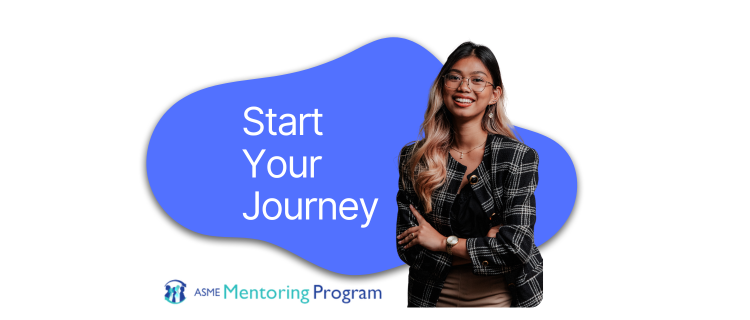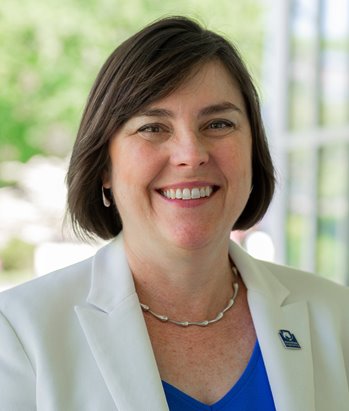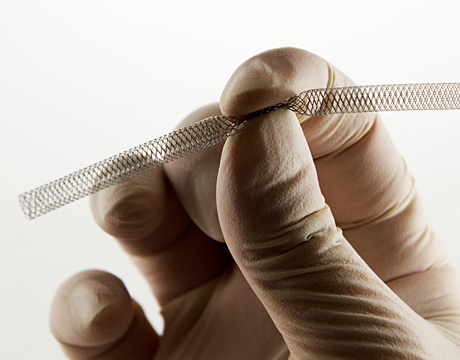How to Make Mentoring Count
How to Make Mentoring Count


ASME McDonald Award winner Mary Frecker talks about the ways mentorships enrich careers.
The recent emphasis on engineering mentorships has placed these professional relationships in the spotlight. While some may chafe at the added responsibility of mentoring early career engineers in the workplace, the benefits of mentoring are borne out in data and in practice. This is true not only for the mentee, but also for the mentor and for organizations that incorporate mentoring into their cultures and professional development strategies.
Various studies have found that both mentors and mentees receive promotions at a higher rate than colleagues who don’t participate in mentoring. Research also identified other advantages for professionals with mentors, such as improved CEO performance, higher retention and employee satisfaction rates, and better financial results.
A 2023 study by MentorcliQ, an employee mentoring platform, found that 92 percent of the Fortune 500 offers a mentoring program, up from 84 percent in the 2022 study. On average, year-over-year median profits rose by 111 percent and headcount increased by 4 percent for Fortune 500 companies with a mentoring program compared with declines of 11 percent and 33 percent, respectively, for those without a mentoring program.
Studies also show that the overwhelming majority of professionals believe that mentorship is valuable, but fewer than half are actively involved in mentoring. For example, Olivet Nazarene University surveyed 3,000 professionals in 2019 and found that 76 percent think mentors are important, but only 37 percent had a mentor at the time.
To help promote mentorship within the engineering community, in 2007, ASME initiated the McDonald Mentoring Award to recognize the outstanding mentoring of professionals by an engineer in industry, government, education or private practice. The 2023 winner, Mary Frecker, is department head and professor of mechanical engineering, Riess Chair of Engineering, and director of the Penn State Center for Biodevices.
Her nominator, former Fulbright postdoctoral fellow at Penn State Jovana Jovanova, said that Frecker’s passion for mentorship has “helped individuals identify their career strengths, provided encouragement and constructive feedback when needed, and celebrated the successes of her mentees.” As a working professional, Jovanova continues to seek out Frecker’s mentorship.
Frecker spoke to ASME.org shortly after she received the McDonald Mentoring Award at the IDETC-CIE 2023: International Design Engineering Technical Conferences & Computers and Information in Engineering Conference in Boston.
ASME: What is your mentoring philosophy?
Mary Frecker: My goal is to help others to succeed. That’s what I’m trying to do through my research, through my work as an administrator, and also as director of a research center. For all the people I work with, I try to understand what their career goals are, then do whatever I can to help them achieve their goals. It continues after they graduate; it’s a lifelong relationship. At the conference, I met one of my former students who is teaching at Purdue, and I got to meet one of his students. I was very proud of him, and it was gratifying to see him carrying on the mentoring tradition.
ASME: How did you become such a strong advocate and leading voice in mentoring?
MF: I participated in different academic leadership programs in which you learn to define your personal and professional mission. In your career, you then look for opportunities that align with this mission. That process really helped me gain clarity on my mission of helping others succeed. It’s why I pursued this position as head of the department. It wasn’t something that I set out to do 20 years ago. It’s not about me or about getting published or recognized. It’s an opportunity to have an impact beyond my own research group. I’m trying to help the faculty, staff, and students in the department do that as well. I want to amplify the effect.
ASME: Should mentoring happen strategically or organically?
MF: I don’t think just letting it happen really works. It works more easily if you’re in the majority group than if you’re not. In my department, we have a formal mentoring program. Early career faculty are paired up with a more senior colleague who provides them with advice about the tenure process and their career. If we didn’t have the formal program, it might happen in some cases, but certainly not all. That’s why it’s important to have a formal mentoring program in place. I’ve benefited from peer mentoring myself, particularly from other women in academic leadership positions. I really value them as a source of support and advice for me. I really appreciate their perspective and lean on them. Again, I don’t think that this would have happened without an organized program to initiate the relationships.
ASME: What should more people know about mentoring?
MF: Mentoring is a two-way thing. It’s something I enjoy doing and that I make a point to do. I also learn from my mentees. I think Jovana, the former post-doc who nominated me, benefited from me introducing her to my network, encouraging her to excel and to move up in her career. At the same time, I have really learned from her. For one thing, she’s excellent at networking. I call her the queen of networking, and not only has she helped me expand my network, but I learned to be a better networker from watching her.
 ASME: What advice do you have as it relates to mentoring?
ASME: What advice do you have as it relates to mentoring?
MF: On the mentee side, don’t be afraid to ask for help. Sometimes people don’t even know what to ask, but I think that most people genuinely want to be helpful. Most are generous with their time and like to give advice. But it can still feel intimidating, especially if someone is very well-known in their field. People may feel reluctant to bother them. But even if you feel a little intimidated, ask for advice. You might be pleasantly surprised at the response.
As a mentor, one thing I’m trying to practice doing right now, that I’ve learned through some of my peer coaching work, is to be a better listener. Instead of just immediately trying to solve the problem for them, I try to listen, repeat it back to them, and let them know that I hear what they’re saying. Show them that I understand what they’re concerned about and then help them figure out the next step on their own. That’s what professional coaches do, and it helps in almost every situation.
ASME: Is there anything unique about mentoring mechanical engineers?
MF: Two things come to mind. As mechanical engineers we are addressing big societal challenges like sustainable energy and improving healthcare. As a result, the field attracts people who want to have an impact on helping others. For example, my own research is related to medical devices, which tends to attract students who want their work to benefit others. That’s not unique to me, but it certainly influences the kind of students who want to work with me. So it’s a good fit for this mentoring approach of helping others succeed through our work. Also, compared with several other engineering disciplines, women are particularly underrepresented in mechanical engineering. We’re making progress, but it’s challenging and slow. So I believe that the need to mentor women is more acute in mechanical engineering than in some other fields.
ASME: Is there anything else you’d like to add about mentoring?
MF: I want to acknowledge that I’ve had some great mentors myself, and I appreciate everyone who helped me along the way. I’ve had some very helpful faculty colleagues as mentors at Penn State. When I was a grad student at the University of Michigan, some of the women faculty were very helpful in showing me the way forward. I have become a big believer in the idea, ‘if you can see it, you can be it.’ Now, being head of the department, I hope it can be an example to women that this is achievable. It may be even more important for men to see that there’s a woman who is a professor, who knows what she’s talking about and who is running the department. It’s something they may never have experienced before. The more this happens, the less anyone will notice it.
Jerry Guerra is an independent writer in Lynnfield, Mass.
Various studies have found that both mentors and mentees receive promotions at a higher rate than colleagues who don’t participate in mentoring. Research also identified other advantages for professionals with mentors, such as improved CEO performance, higher retention and employee satisfaction rates, and better financial results.
A 2023 study by MentorcliQ, an employee mentoring platform, found that 92 percent of the Fortune 500 offers a mentoring program, up from 84 percent in the 2022 study. On average, year-over-year median profits rose by 111 percent and headcount increased by 4 percent for Fortune 500 companies with a mentoring program compared with declines of 11 percent and 33 percent, respectively, for those without a mentoring program.
Studies also show that the overwhelming majority of professionals believe that mentorship is valuable, but fewer than half are actively involved in mentoring. For example, Olivet Nazarene University surveyed 3,000 professionals in 2019 and found that 76 percent think mentors are important, but only 37 percent had a mentor at the time.
To help promote mentorship within the engineering community, in 2007, ASME initiated the McDonald Mentoring Award to recognize the outstanding mentoring of professionals by an engineer in industry, government, education or private practice. The 2023 winner, Mary Frecker, is department head and professor of mechanical engineering, Riess Chair of Engineering, and director of the Penn State Center for Biodevices.
Her nominator, former Fulbright postdoctoral fellow at Penn State Jovana Jovanova, said that Frecker’s passion for mentorship has “helped individuals identify their career strengths, provided encouragement and constructive feedback when needed, and celebrated the successes of her mentees.” As a working professional, Jovanova continues to seek out Frecker’s mentorship.
Frecker spoke to ASME.org shortly after she received the McDonald Mentoring Award at the IDETC-CIE 2023: International Design Engineering Technical Conferences & Computers and Information in Engineering Conference in Boston.
ASME: What is your mentoring philosophy?
Mary Frecker: My goal is to help others to succeed. That’s what I’m trying to do through my research, through my work as an administrator, and also as director of a research center. For all the people I work with, I try to understand what their career goals are, then do whatever I can to help them achieve their goals. It continues after they graduate; it’s a lifelong relationship. At the conference, I met one of my former students who is teaching at Purdue, and I got to meet one of his students. I was very proud of him, and it was gratifying to see him carrying on the mentoring tradition.
ASME: How did you become such a strong advocate and leading voice in mentoring?
MF: I participated in different academic leadership programs in which you learn to define your personal and professional mission. In your career, you then look for opportunities that align with this mission. That process really helped me gain clarity on my mission of helping others succeed. It’s why I pursued this position as head of the department. It wasn’t something that I set out to do 20 years ago. It’s not about me or about getting published or recognized. It’s an opportunity to have an impact beyond my own research group. I’m trying to help the faculty, staff, and students in the department do that as well. I want to amplify the effect.
ASME: Should mentoring happen strategically or organically?
MF: I don’t think just letting it happen really works. It works more easily if you’re in the majority group than if you’re not. In my department, we have a formal mentoring program. Early career faculty are paired up with a more senior colleague who provides them with advice about the tenure process and their career. If we didn’t have the formal program, it might happen in some cases, but certainly not all. That’s why it’s important to have a formal mentoring program in place. I’ve benefited from peer mentoring myself, particularly from other women in academic leadership positions. I really value them as a source of support and advice for me. I really appreciate their perspective and lean on them. Again, I don’t think that this would have happened without an organized program to initiate the relationships.
ASME: What should more people know about mentoring?
MF: Mentoring is a two-way thing. It’s something I enjoy doing and that I make a point to do. I also learn from my mentees. I think Jovana, the former post-doc who nominated me, benefited from me introducing her to my network, encouraging her to excel and to move up in her career. At the same time, I have really learned from her. For one thing, she’s excellent at networking. I call her the queen of networking, and not only has she helped me expand my network, but I learned to be a better networker from watching her.

Connect, Learn, and Grow
The newly relaunched ASME Mentoring Program offers traditional mentoring, group mentoring, guided learnings, and much more...
MF: On the mentee side, don’t be afraid to ask for help. Sometimes people don’t even know what to ask, but I think that most people genuinely want to be helpful. Most are generous with their time and like to give advice. But it can still feel intimidating, especially if someone is very well-known in their field. People may feel reluctant to bother them. But even if you feel a little intimidated, ask for advice. You might be pleasantly surprised at the response.
As a mentor, one thing I’m trying to practice doing right now, that I’ve learned through some of my peer coaching work, is to be a better listener. Instead of just immediately trying to solve the problem for them, I try to listen, repeat it back to them, and let them know that I hear what they’re saying. Show them that I understand what they’re concerned about and then help them figure out the next step on their own. That’s what professional coaches do, and it helps in almost every situation.
ASME: Is there anything unique about mentoring mechanical engineers?
MF: Two things come to mind. As mechanical engineers we are addressing big societal challenges like sustainable energy and improving healthcare. As a result, the field attracts people who want to have an impact on helping others. For example, my own research is related to medical devices, which tends to attract students who want their work to benefit others. That’s not unique to me, but it certainly influences the kind of students who want to work with me. So it’s a good fit for this mentoring approach of helping others succeed through our work. Also, compared with several other engineering disciplines, women are particularly underrepresented in mechanical engineering. We’re making progress, but it’s challenging and slow. So I believe that the need to mentor women is more acute in mechanical engineering than in some other fields.
ASME: Is there anything else you’d like to add about mentoring?
MF: I want to acknowledge that I’ve had some great mentors myself, and I appreciate everyone who helped me along the way. I’ve had some very helpful faculty colleagues as mentors at Penn State. When I was a grad student at the University of Michigan, some of the women faculty were very helpful in showing me the way forward. I have become a big believer in the idea, ‘if you can see it, you can be it.’ Now, being head of the department, I hope it can be an example to women that this is achievable. It may be even more important for men to see that there’s a woman who is a professor, who knows what she’s talking about and who is running the department. It’s something they may never have experienced before. The more this happens, the less anyone will notice it.
Jerry Guerra is an independent writer in Lynnfield, Mass.






.png?width=854&height=480&ext=.png)